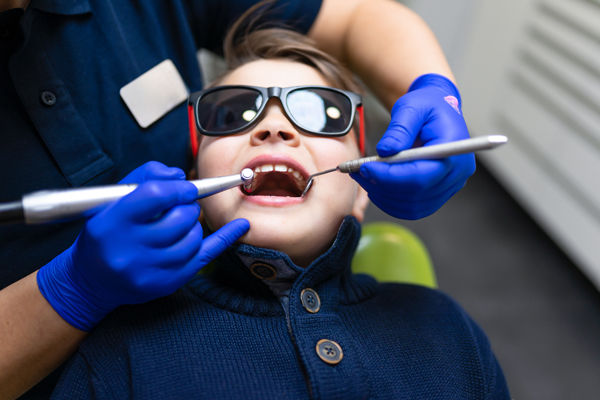Steps to Take Before Seeing an Emergency Pediatric Dentist

Going to an emergency pediatric dentist can give your child immediate dental needs. Treating urgent dental issues can provide relief right away. It can also prevent complications. Here are the necessary steps that you can take even before the drive to your emergency pediatric dentist.
Reassure the child and stay calm
Showing distress will only intensify the child’s anxiety. This will make it more difficult for the emergency pediatric dentist to provide the necessary care. The child will likely be in pain during a dental issue. Some bleeding may cause panic. Guardians or parents must remain calm at this point.
Understand the common emergency tooth injuries in kids
Kids are more prone to oral or facial accidents because of falls or rough play. Knowing the different dental emergencies in children can help the guardian or parent decide when to drive to an emergency pediatric dentist. This will make it easier to determine what to do. The following are the common dental injuries in kids that often need an emergency pediatric dentist:
- A fractured or chipped tooth may occur after a facial or oral injury. A fractured tooth’s damage goes beyond the enamel layer. A chipped tooth’s damage is confined to the tooth’s enamel layer.
- Soft tissue dental injuries involve damage to the tongue, gums, or lips. These injuries can cause pain and bleeding.
- Displaced or loosened teeth can result from trauma.
- An avulsion or knocked-out tooth happens when the tooth detaches partially or completely from its socket.
Evaluate the injury
Assessing the child’s injury will provide an idea of how severe it is. See if the child lost or injured a tooth. Doing so will tell the parent or guardian what to do next. This will include whether the child will need the help of an emergency pediatric dentist or schedule a regular dental appointment.
Manage the damaged tooth
The chipped or fractured tooth will be prone to dental infection. It is important to keep the tooth clean. Rinse the child’s mouth with warm water. Recover any dental fragments and soak them in milk. Then, bring the child to the emergency pediatric dentist.
Take care of the knocked-out tooth
There will be bleeding after a tooth is knocked out from its socket. Place a sterile gauze on the area and have the child bite gently to apply pressure. Find the tooth and handle it by its crown. Rinse it gently with some milk and place it in a small container of milk. This will keep the tooth alive and moist. Have the child hold a cold compress on the cheek near the area of injury while driving to the emergency pediatric dentist.
Tend to the displaced or loose tooth
Trauma can also cause a tooth to loosen or partially dislodge from its socket. Refrain from touching the loose tooth. Gently place the displaced tooth back into its original position. Place a cold compress on the cheek near the injured tooth. This will reduce the swelling and pain. Giving the child an over-the-counter pain reliever can also provide relief until the child arrives at the emergency pediatric dentist’s clinic.
Preparing before going to an emergency pediatric dentist can provide faster relief
Research shows that children are prone to facial or oral injuries. Falls, contact sports, or biting into something hard can result in dental damage or missing teeth. Knowing what to do before going to the emergency dental clinic can provide some relief to your child right away. Working with your emergency pediatric dentist can prevent complications.
Request an appointment here: https://www.littlemolarsnj.com or call Little Molars Pediatric Dentistry at (862) 451-8222 for an appointment in our West Caldwell office.
Check out what others are saying about our dental services on Yelp: Pediatric Dentist in West Caldwell, NJ.
Related Posts
A pediatric dental emergency often triggers panic in the children themselves and some parents. Keeping your peace of mind is important during this crisis. Comforting the child is a priority and can make the trip to the pediatric dentist easier. Here are the details if you want to know more about the common kids' dental…
If there is one thing parents do not know how to deal with, it is kids toothaches. Not only are you worried about your kids, but they become irritable when they are in pain. The first thing you should do is set an appointment with a pediatric dentist. But while you wait for the schedule,…
Toothbrushing is an essential practice for dental health. Doing it along with flossing can help children set a good dental care routine at an early age. It takes patience to teach your child to do it right until the habit forms. If you want to know more toothbrushing tips you can share with your young…
Neglecting good oral care is a habit that too many people fall into. This can happen with teens and adults alike. However, young children frequently struggle with these everyday activities. The consequences can be severe and have long-term effects. As a parent, you need to help with a few essential steps so your son or…
